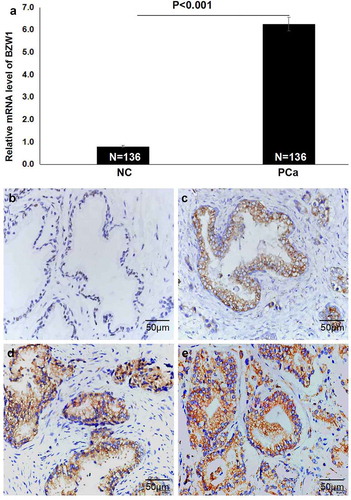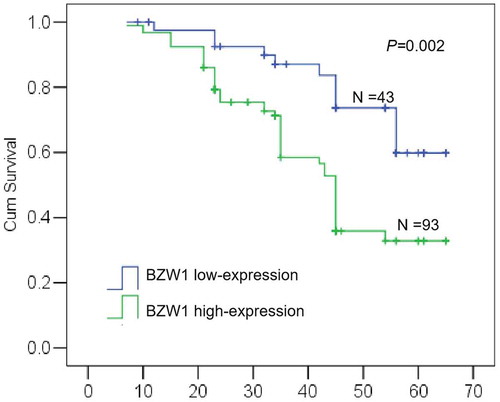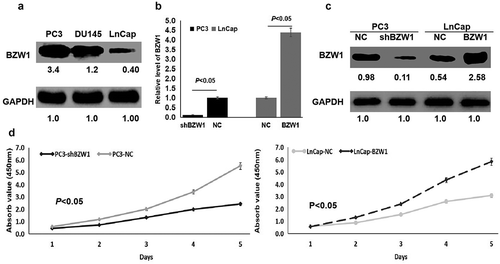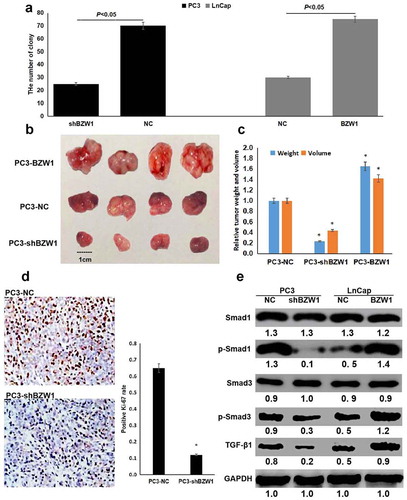Figures & data
Table 1. BZW1 expression detected in PCa and non-cancerous prostate tissues by IHC
Figure 1. The expression levels of BZW1 were detected in PCa. (a) qRT-PCR revealed that the mRNA levels of BZW1 were significantly higher in PCa compared with those in NC. (NC: non-cancerous prostate tissues). (b) BZW1 low expression in non-cancerous prostate tissues by IHC (score = 0). (c) BZW1 low expression in PCa by IHC (score = 2). (d) BZW1 high expression in PCa by IHC (score = 4). (e) BZW1 high expression in PCa by IHC (score = 6)

Table 2. BZW1 expression correlated with clinicopathological characteristics in PCa
Table 3. Survival analysis performed by Kaplan–Meier method
Table 4. Prognostic factors analyzed by Cox’s proportional hazards model
Figure 2. Kaplan–Meier survival analysis indicated that patients with BZW1 overexpression had unfavorable survival

Figure 3. BZW1 overexpression promoted cell proliferation in vitro. (a) The protein expression of BZW1 was detected in PCa cell lines by Western blot. (b) qRT-PCR analysis revealed that BZW1 downregulation and up-regulation were successfully performed. (c) Western blot analysis revealed that BZW1 downregulation and upregulation were successfully performed. (d) CCK-8 assay has shown that BZW1 down regulation significantly inhibited cell proliferation, while BZW1 overexpression significantly promoted cell proliferation

Figure 4. BZW1 overexpression promoted cell proliferation in vivo. (a) BZW1 overexpression promoted colony formation. (b) The photographs of solid tumors. (c) Statistical analysis of tumor weight and tumor volume. (d) The expression of Ki-67 in solid tumor tissues. (e) BZW1 overexpression activated the TGF-β1/Smad pathway. *Compared with NC groups, P< 0.05

